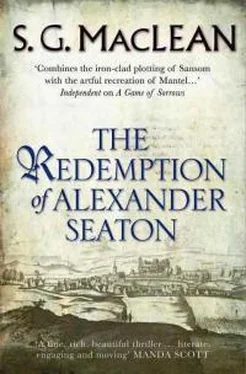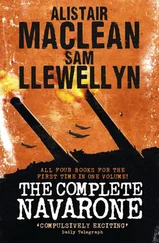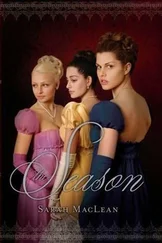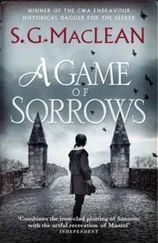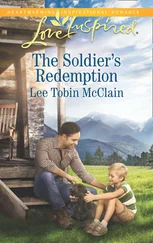The doctor spoke again. ‘God forbid that any of us should take pleasure in such a thing. The girl should have been living and breathing and working yet in the apothecary’s shop and the provost’s nursery, but she is gone, and not by her own hand. We are too late now to prevent that injustice, but not another. Surely now, Buchan, the boy can go free?’
The baillie slowly nodded. His face was impassive and I could not guess what his thoughts were. ‘Yes, doctor, he can go free. Or, at least, I will consent to release him into your care. I have the authority, although I will doubtless have much answering for it to do before the council. But mark me well, see that he does not wander alone about the streets, or leave the town. He is less safe now than ever he was in the tolbooth. Heed my counsel, doctor.’
The doctor stood up, fully recovered now. ‘I will,’ and without further address to the baillie he turned to Charles. ‘Come on, boy, we’re going home.’
As we descended the dark stairway, the baillie, from his narrow doorway, spoke to me. ‘And you, Mr Seaton, you also should be careful what you are about.’ I made no reply and was glad soon to be out into the relative light of the vennel.
The homecoming to the doctor’s was a markedly different affair from our departure from the baillie’s. After her initial shock, Ishbel flew about the house making everything ready. The stable boy had been despatched within minutes to collect what was needful from the apothecary’s house; the rest could be got later. There was no notion that Charles would ever return to his attic room there, nor indeed, from the manner of the doctor and his housemaid, that he should ever leave their home. The contentment on the doctor’s face and the mild bemusement on Charles’s were as nothing to the determination of the young girl that the music master should not suffer one more moment’s hunger, thirst, cold or discomfort. That I was an imposition under her feet was made very clear, to my amusement rather than hurt, and to Jaffray’s too. Promising that I would indeed return to take my dinner with them that night, I left them to their moment. I had other business to attend to.
It was a steep climb to the codroche houses, along Low Street and up Back Path with its new-built dwellings – young craftsmen making their mark on the world for all to see, engraving their love on the lintels above the doors of their new households. My father had told me once, as we had passed such a doorway, that he had wanted to do the same when he had first brought my mother home from Ireland, to tell the world that she was his and he hers. But there was no engraving above our door, I said. ‘No boy, your mother thought it not seemly. She did not want to be as the other craftsmen’s wives.’ And that had perhaps been it, the beginning of the crumbling of his dream, when she had started, unwittingly perhaps, to punish him, little by little, for her mistake.
I turned left where Back Path met High Street, where some of the grander ones planned their houses away from the bustle of the marketplace and town, and headed up towards the Sandyhill Gate. The wind was not in my face, as it could often be, and it was a pleasant walk. I had no need to rush – Charles was out of the tolbooth, away from the danger of the sheriff’s judgement now, and those I sought would not be abroad until it grew dark. I had the time to rest a moment where the road for Strathbogie skirted the foot of the Gallowhill, and to look upon the town of my birth. At the end of its journey from the mountains of the Cairngorm, past the teeming woods of the Deerpark, the clear waters of the Deveron came straight as an arrow, an arrow of fine silver, at the sea, where it broadened out to meet the world. Under a sky that was endless, the great promontories of Tarlair and Troup Head towered over all that might come from the east, and looked to the north and west, where the long golden stretch of the links invited us to our leisure. And our town nestled there, snug back from the west bank of the river, stretching towards its new harbour works at Guthrie’s Haven. Narrow winding streets, tentacles reaching up towards the castle, Caldhame, the Boyndie road and the Sandyhills, met together at the heart of the town. The kirk and the marketplace, the tolbooth and the laird of Banff’s palace, its long green garden stretching almost to the Greenbanks where the scholars played on this, another unlooked-for holiday. The tall town houses of the merchants jostled with the tenements filled with the poorer folk, the lower craftsmen, the day labourers, the indwellers. A tight, sometimes meandering network of vennels and alleyways, houses, workshops and backyards locked the streets together, a maze that ran through gardens, round wells, into courtyards, pigsties, stables, kailyards, middens. Such was Banff, a place so blessed by God in harvest of land and sea, gone rotten at the heart. And at that heart, I was. A huge cloud began to pass over the sun and the air instantly cooled. I quickened my pace towards the Sandyhill Gate and the codroche houses.
They were not houses really, but shambling, windowless shacks of wood, turf and thatch of the sort the council was striving to banish from the town for fear of fire. They were set back a good bit from the road, up the hillside where a small burn ran down by the rowans and bramble bushes. No one from the town ventured to the codroche houses. The kirk session and council fulminated often against them and their inhabitants, but they were never levelled, never cleared. Filled with beggars, thieves and whores, the detritus of poverty that gave a name to all the fears of the good townspeople. The provost had told me why he tolerated them: they were weeds – weeds that we knew and could control, weeds that would prevent other, invasive weeds coming in and taking root. Weeds that could be managed. Yes, but I also suspected that up here, out of sight, the codroche houses could be, in the minds of my fellow townsmen, a place in which all the evil that was in their town could repose, a reason for them not to look in their neighbour’s face, in their own heart, and see it there instead.
As I approached the huddle of shacks a trio of mangy, hungry dogs came towards me, snarling quietly. A small, filthy child, a girl perhaps, in thin rags, ran into one of the houses from the hen house where she had been gathering eggs. A young man – it might have been her father – soon emerged, a large stick in his hand. I did not know him. He did not call off the dogs. ‘What do you want?’ he asked.
‘I am here to see Lang Geordie,’ I said.
His suspicion was all the greater.
‘Lang Geordie sees no one. What is your business?’
‘None of yours.’
I kept my face steady but my heart was pounding and the dogs knew it. They crept closer, and at any moment, at a word from the beggar man, they would be at my throat. More figures had emerged from the houses, two or three other young men, little more than boys, a gaggle of dirty children, a young woman holding a baby, another big with child. Perhaps a dozen pairs of eyes fixed me with cold hostility. The closest dog let out a long growl and was about to spring when a low snarl in some tongue, some vagabond’s cant I did not understand, came from the doorway of the main shack. The dog cowered back with a yelp, as if struck, and then slunk away with its companions. The gathering of people at the doorway parted and surveying me, as he supported himself on two crutches, was Lang Geordie.
The man must have been nearly seven feet tall, a giant almost. He had the wild hair and beard of an Old Testament prophet. The brandings on his cheek, marking him out as a ‘sturdy beggar’, repulsed on pain of death from some other town, only served to inspire greater fear in those who came upon him. I stood there, my chest still heaving from the encounter with the dogs, and waited.
Читать дальше
